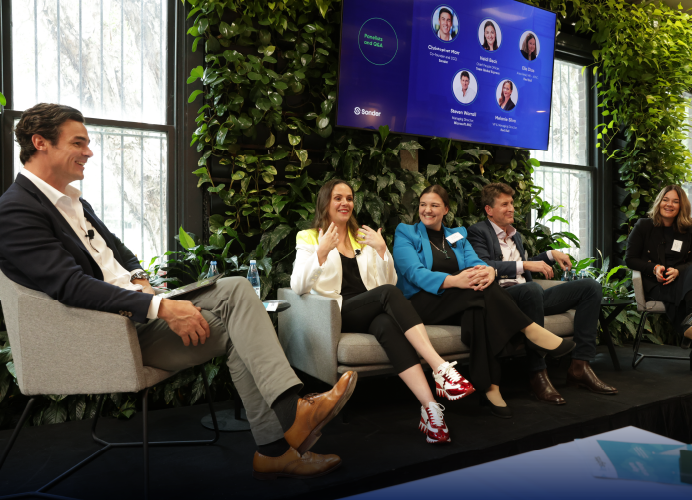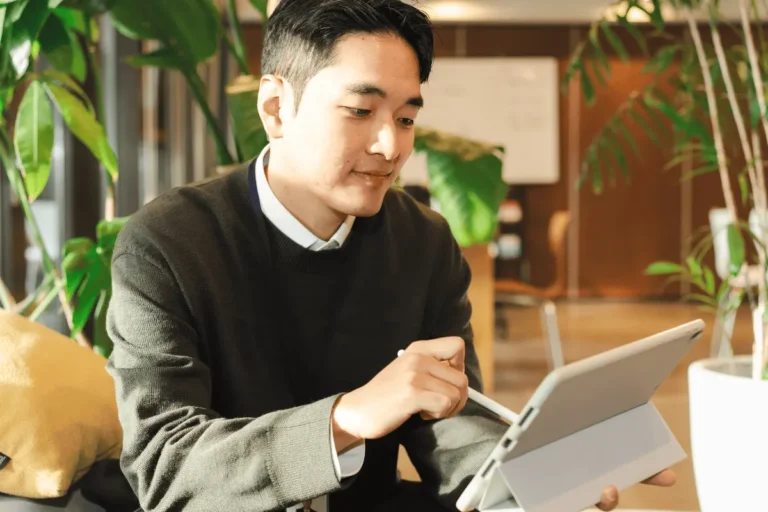Introduction
We are pleased to share this final instalment from our recent Agents of change for organisational wellbeing event. Held in our Sydney office, this event for wellbeing leaders generated much formal and informal discussion as attendees and panellists shared questions and anecdotes about how best to create a “healthy organisation” which brings together healthy people, healthy work, and healthy culture, whilst also achieving positive business, innovation, and people outcomes.
Hosted by Christopher Marr, our co-founder and CCO, this final session brought each of the following guest speakers on stage to answer questions from our audience of wellbeing leaders.
- Melanie Silva, Managing Director and VP ANZ, Google;
- Steven Worrall, Managing Director ANZ, Microsoft, and the founding Chair of the Corporate Mental Health Alliance;
- Elle Dias, Area Head HR APAC, Red Bull; and
- Heidi Beck, Chief People Officer, Team Global Express.
Event video
Panellists
Melanie Silva
Managing Director and VP ANZ, Google
Melanie is responsible for ensuring the organisation delivers on Google’s mission for users and the community, supporting the amazing teams in both countries, and overseeing the work it does across sales, partnerships, and platforms to help businesses grow.
Prior to Melanie’s 15½ year tenure at Google, her finance and economics background saw her spend time at companies such as Citibank, AMP, ING Direct, and more.
Steven Worrall
Managing Director ANZ, Microsoft Founding Chair, Corporate Mental
Health Alliance
Steven is responsible for ensuring Microsoft meets the needs of its customers and the more than 10,000 partners and independent software vendors that sell or build on the Microsoft platform in Australia and New Zealand. Prior to joining Microsoft 8 years ago, Steven worked for IBM for 22 years and held a number of marketing, sales, and general management roles in the services, software and financing segments of the organisation.
Steven is the founding Chair of the Corporate Mental Health Alliance in Australia and is the Microsoft Global Indigenous Employee Resource Group Executive Co-Sponsor. Steven is committed to a sustainable and inclusive future and is a founding member of the Australian Climate Leaders Coalition and is Chair of the New South Wales Skills Board
Elle Dias
Area Head HR APAC, Red Bull
Elle is responsible for the management of all Asia Pacific Human Resource disciplines of the globally renowned beverage and media business that prides itself on Giving Wings to People and Ideas. Elle’s proven track record includes years of creating and executing transformational change strategies, as well as strategic planning to help drive corporate change.
Prior to Elle’s (nearly 12 years) at Red Bull, she spent seven years in HR at another major multinational company – Unilever.
Heidi Beck
Chief People Officer, Team Global Express
Heidi brings a unique skillset of aligning multiple stakeholders to challenging, transformative, and often difficult decisions across leading influential organisations. She has deep strategy, transformation, and organisational design experience and broad application of general management in both corporate functions and business roles.
Prior to Team Global Express, Heidi held senior strategy roles at Westpac and Qantas, as well as nearly 10 years as a management consultant in Australia and the United States with McKinsey & Company.
Christopher Marr
Co-founder and Chief Commercial Officer, Sonder
Christopher has dedicated his life to serving others, previously serving 20 years as an Australian Army officer, including 10 as a leader and commander in the special forces. His role at Sonder is to lead the commercial strategy and growth of the company, both domestically and internationally. He is committed to addressing the world’s burgeoning health crisis by disrupting the way people access help.
Transcript
[00:00:10] Christopher Marr: Before we let you off the therapy couch, we were hoping that we might ask you, Heidi and Elle, to join and then open it up to the room for some questions. We’d love to hear from you. So please, Heidi and Elle, please feel free to come up.
So, we’ve got just under 30 minutes for questions. I hope we use the time in this wonderful panel to draw out the insights. I’m going to give you a few moments to think about some questions, which I really encourage, but I might start with a couple, just to provide the opportunity.
Mel, I’m fascinated to know what work Google is doing behind the scenes to offer the links for mental health and support suicide prevention based on the keywords people might be searching. Is this something that’s going on?
[00:01:15] Melanie Silva: Yeah, it’s actually something that …we made some pretty big changes a couple of years ago because I think Google is such a…you go to Google, and you always tell Google the truth.
[00:01:31] Christopher Marr: Is that what the delete history button is for?
[00:01:35] Melanie Silva: But there was actually a mother who reached out to me post her son committing suicide and she was just asking for help. She said, “I could see in his search history exactly what he was searching for,” and, if we’d have known, we would’ve known. And of course, that’s private and you don’t want to share that information. But it did make us kind of put our heads together and say, how can we do better? Because of course, if it was really direct keywords, we would offer up information to the suicide hotlines and make sure that we were surfacing Lifeline and help. But there’s kind of fringe words. So, we’ve made a huge effort to make sure that we’re looking at that full spectrum and trying to think about what might be going through someone’s mind and what translates into a keyword at that moment, to make sure that we can surface as much helpful and authoritative information as we can.
[00:02:33] Christopher Marr: Mel, what are the insights about the health of the nation, as an example? Because when you see, like this lady’s son, and of course it’s unlikely that… I’m sure you’ve got the data that you could, but you wouldn’t. But when you look at this on an aggregated level for a society or portions of society, and what are you doing with that data to try and sort of raise awareness, make impact at a governmental level perhaps?
[00:02:56] Melanie Silva: Yeah, absolutely. At a governmental level. During COVID we saw huge spikes in things like mental health, but particularly domestic violence. And putting that on the government’s radar early on, I think was a really good early warning system to them. To shine a light on something that we kind of… it makes perfect sense, right? Okay, well people are locked in their houses, and you might be locked in that house with a partner who doesn’t treat you very well. But it was so far out of the realm of where we were all at, at that particular time.
So yeah, we’re always trying to keep an eye on all of those sorts of things and servicing them to the right authorities. But anonymously, of course.
[00:03:37] Christopher Marr: Thank you. Have we got any questions from the room?
[00:03:42] Audience: Thank you very much, it’s been being incredibly insightful. My name is Jane from [ ] Superannuation and due to [ ].
Both of your businesses, you’ve kept us remotely working for the last two years, so very much appreciate that. However, we do know that connectivity has gone down. Yet we are struggling to get everyone back in the office. So, is there any tips from any of the businesses of nailing that return to work?
[00:04:15] Elle Dias: I was going to say that I think also it’s a challenge that all industries and organisations are having at the moment. And also, we’re all coming from a different starting point. Some were remote pre COVID, some are going remote for the first time during COVID.
But in our organisation, culture, coming together and having those connectivities, and really getting to know the people that you work with is centre to what we do. So, we really try and make sure that when we’ve got certain meetings that we are inviting – we’re making the environment a place where people actually want to see their peers. They want to know who they’re working with on a project team.
Just like other organisations, the war for talent is real, so people are changing all the time. And so, we try and make it as inviting as we can, so people can come together and connect and build relationships and be able to work face to face as well, on certain projects.
“The war for talent is real… so we try and make it as inviting as we can, so people can come together and connect and build relationships and be able to work face to face as well…”
—Elle Dias
Area Head HR APAC, Red Bull
[00:05:11] Heidi Beck: There’s really not an easy answer because also in different industries, in different parts, you’ve actually got very, very different challenges. I look where we are, we’ve got two-thirds of a workforce that didn’t have the luxury of being able to be remote. The nature of that job was out actually keeping the rest of the economy moving.
And so, for us it’s been one of respect and equity and actually building that culture back, which is, for those of you who had that luxury of being able to work away, it’s getting you back in touch with all of those colleagues who haven’t been able to do that. And for us, some of the fundamental forcing mechanisms – for want of better words – of policies and alignment and having team empowerment around what’s that blended way of working, also comes with that purpose of, actually, this is about reconnecting you with all the people who actually are there servicing customers. So that mission or that purpose, we talked about that, but we found that a little bit easier because it’s about saying it’s time to get reconnected with the two-thirds of people that haven’t had that luxury and treating that there. In some ways that makes it easier than those companies that you don’t have that – theoretically the work can be done from anywhere.
[00:06:32] Melanie Silva: I’ll just share what I’ve learned along the way. I don’t think anyone’s got the playbook on this. I think we’re all just muddling our way through it, to be honest.
[00:06:42] Audience: That actually helps.
[00:06:44] Melanie Silva: We went with hybrid and most of our teams have been quite firm on which days. So, for a company like Google, which is quite like, yeah, thrive in the ambiguity, and let’s just all be cool, whatever, that was a lot of structure that initially we got a lot of pushback. Like, why are you forcing me to come in on these days? And yes, everyone was going to have an opinion. Three, four months down the track, I would say it’s the structure that’s created the serendipity, which is what creates people wanting to come back.
“I would say it’s the structure [of our hybrid work practices] that’s created the serendipity, which is what creates people wanting to come back.”
—Melanie Silva
Managing Director and VP ANZ, Google
The worst thing that happened was when people would come back, and they were in like a ghost town. So they’d be in there by themselves, they’d be sitting in a room by themselves, on calls all day, there’s no one around, no vibe. So, but because we’ve said, right, it’s Tuesday, Wednesday, Thursday – Tuesday, Wednesday, Thursday are buzzing in that office and that’s what keeps people coming back, even though you have to wait longer for your coffee.
[00:07:50] Heidi Beck: I think you’re right. That structure. We’ve got to remember that humans by design have a level of creatures of habit. Anyone with toddlers or babies realise that structure and the routine, whether you’re a routine person or not, is a saving grace. People do thrive on some of that and it’s about what works within their business.
And we’ve gone hybrid, but we’ve left individual teams up to making that kind of call as to what they are. And for my teams, which are nationally spread in various places, that reflects itself in that once a month, everyone together in one single location, so that team comes together, because it’s spread out, with an expectation that they otherwise are keeping the days of the depot or the location and the other kind of…and that side from there.
So, some are Tuesday, Wednesday, Thursday, some are Monday, Thursday, Friday, but they’re aligning to where they’re being and where they’re spending, and that structure has helped as well when they put them in place. The teams that have said, oh, it’s a free-for-all, have actually found it the hardest to manage, even though they think they’re giving more flexibility.
And then we’re challenged with just all the worst side of it, which is those employees that don’t have that option by nature of the kind of work they perform, that can then go, well, hold on a second, something’s really not fair.
[00:09:21] Christopher Marr: Please, whilst the question’s asked, if you put your hand up, Jace will get the microphone to you for the next question.
[00:09:31] Jamie Vickers: Jamie from Teladoc Health. Thank you everyone for the discussion today. Really interesting. And Mel, thank you for keeping it real and relatable, as always.
My question is for Steven though. I guess in light of mental health growing and interest (09:40) rates growing, and also in light of corporates doing more and more, I’m kind of interested in the mental health alliance and how you see, or what the discussion is and what the kind of key areas of focus are for where we’re going to be in five, ten years, if it does keep growing, and what can corporates do over and above what they’re doing at the moment?
[00:10:10] Steven Worrall: Look, we don’t spend a lot of time trying to forecast what things are going to look like in five to ten years. Five to ten years, it will pass soon enough, and we’ll find out. What we do know is what’s happening in our workplaces today. And the impacts of poor mental health are all around us. And as a consequence, there’s a massive amount of work going on.
“We don’t spend a lot of time trying to forecast what things are going to look like in five to ten years. What we do know is what’s happening in our workplaces today. And the impacts of poor mental health are all around us.”
—Steven Worrall
Managing Director ANZ, Microsoft, and the founding Chair of the Corporate Mental Health Alliance
And a couple of quick stories – Commonwealth Bank of Australia, one of the members,do such amazing work inside their organisation to provide support for their teams and their customers, which is interesting, in dealing with life’s events.
And so, there are 1,800 separate pieces of content that they have prepared from trained psychologists and professionals that you might use. Just as an example, if you’re having a conversation with someone who had a miscarriage, what would you say? How would you respond? A bit back to Mel’s point about when someone tells you that they’re pregnant, the first words out of your mouth should be congratulations.
But think about all the different things that happen in any person’s life. And you walk in one day and your team member says their parent has been diagnosed with dementia. How do you respond? What can you say? What are the questions or the thoughts that might be going through your head?
And so having these assets, they are just so valuable. And CBA have been working on this for years, and they’ve made that all available to everyone – not just to the Alliance, but to any organisation.
Price Waterhouse have a Green Light to Talk program. Woolworths have an I Am Here program. I think Sonder may have had something to do with that. The list goes on. These are really important activities and tactics that are being used today. And so, the agenda for the Alliance is to leverage all of that great work that’s going on and to share it.
It’s also then to focus on a couple of cohorts or areas where we know that much more needs to be done. One of those is early in careers. And Ellen Derrickfrom Deloitte is leading this piece of work, which is very much about, what’s the early in career experience been like over the last couple of years? Not so good. If you’ve had a conversation with anyone who’s joined your company in the last two years, you’ll know that. How are we thinking about that cohort and how are we helping them to navigate now back into, not a post pandemic world, but to get back to some sort of normality, how do we reconnect them with their peers and how do we help them get mentors and build their networks?
We’re also working on leadership. One of the clear outcomes from all of the research is that leadership inside organisations is perhaps the single most determining factor of whether that environment is going to be psychologically safe. And so, we are working with the BCA and obviously our members to continue that discussion about the psychologically informed leader.
When I started my career, if someone had said, you need to be psychologically informed, I would have asked them to explain what does that mean and why would I need to be? But today, I think we acknowledge that’s essential.
And so, there are a couple of examples. And I think for us, the Alliance is all about, what can we practically do today and what can we invest in to help improve the quality of support we provide so that tomorrow and next year is better than yesterday and this year and five years from now?
I hope those impacts can continue to ladder up to a better outcome, but you just look at what’s happening in our community more broadly – there’s a lot of work that has to be done. Thanks for the question.
[00:13:25] Audience: Yeah, look, I think you actually answered the question that I was intending to ask, so I’m going to swap it around a little bit. Steven, you said early on in your discussion that in terms of wellbeing, we still have a long way to go. I’ll preface my question by saying, who would have thought we could make such a shift in terms of the hybrid workplace, virtually overnight?
In that context then, and the other thing I’d say is, five years ago wellbeing was pretty much a sidebar conversation, to be honest, not the prominence it has now.
So, my question is, is the future of wellbeing and where we can go, is it going to be a small series of incremental steps, or do we have the capacity to really take on the big rocks?
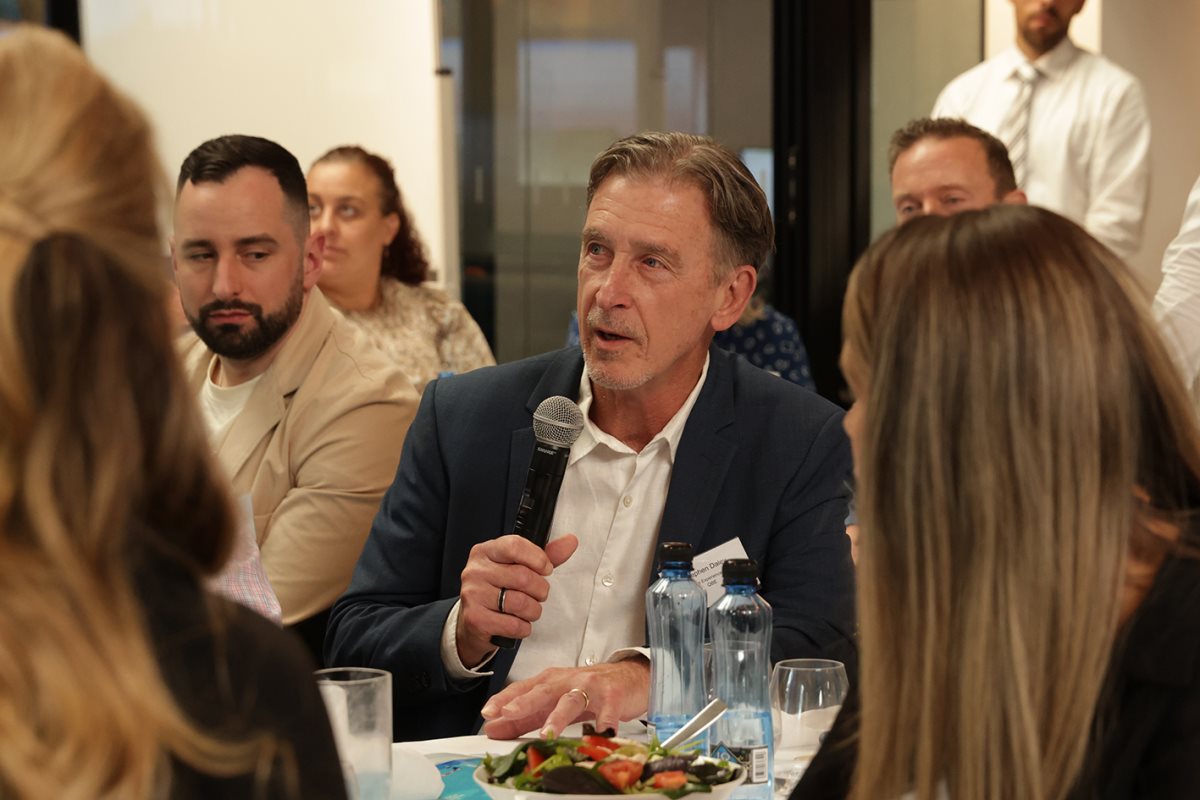
[00:14:10] Steven Worrall: Let me take a quick run at that. I’d love to hear other thoughts. But look, if you think about physical safety, and if you go back over the last couple of decades in this country, maybe more so here because of our dependence on mining and construction industries and the nature of our economy, but there’s no one in any industry in Australia that would say it’s not acceptable for a person to go to work and not feel comfortable that they’re likely to go home from work that day – physically, that is – to be injured or to be killed. No one would debate that basic aspect of a workplace.
In fact, in a lot of our wonderful mining and manufacturing companies, the first thing that you’ll do in any meeting is have a safety briefing. You know, you’ll be in a boardroom in Melbourne and you’ll be sitting around the table, and you’ll be conducting a safety briefing, thinking, is there something going to fall out the ceiling or is there something in my coffee I should worry about? But it’s part of the culture, it’s part of, that’s just how things happen around here.
I am optimistic. I do believe we are rapidly moving towards a state where that is the same assumption for your mental health and your psychological safety at work. And I think the pandemic has put that on as turbo charged. And for all the negative impacts of the pandemic, I think one of the positives is that we are now talking about this, and I do believe, maybe in five or ten years, that it will be as accepted that we should have safe workplaces, both physically and mentally for every Australian to go to.
I’d love to hear other thoughts.
[00:15:40] Melanie Silva: Yeah, I mean, I feel like every step forward is a good one. So, I don’t want to use the word incremental as if it’s a bad thing. It’s not just the big leaps that are worth celebrating. But I just feel like, personally, my leadership team, we’re on this journey of enlightenment that happens every single day. every single day.
And maybe it’s because of Google and the nature of the work, but we see the way that our products land with, maybe the hard of hearing community, or we look at disability and accessibility and when we’re designing a new building, and it kind of sparks a thing.
So, when you think about wanting a culture of inclusion – and for us inclusion really means mental wellness and mental health as well as all of the things you can and can’t see, and your gender and all that kind of stuff. Then I think that there is so much improvement. So much! I mean, even just women, right? Some might say we’ve come a long way. I say glacial. I say glacial and I say still got a long way to go. But as long as everyone’s going forward, as long as we’re not taking steps backward, it’s all good.
[00:17:00] Heidi Beck: I going to just add to both and say, I don’t think we actually had a choice. When you guys were both speaking and I was kind of reflecting here on that one. I like to think I’m quite young, but I’m 42, and I bring that up in that space because I’m probably the very last individual in terms of an age group that went to school without email, social media, anything across the board, the whole way through.
I was still required in university to go and quote and find in a library the original source. So I could use the internet, but I needed to have cited or found the Dewey Decimal System library card to reference, because that was considered the more authoritative piece in terms of doing it.
[00:17:46] Steven Worrall: I’m old enough to ask, what’s the internet?
[00:17:49] Heidi Beck: That’s right. But I bring this up because, while I like to think that I’m quite young, I know I’m actually not anymore on that side. And if you think about that shift in connectivity, the health and wellbeing risks and benefits of that interconnectedness that has happened since that 1994/1995 kind of window, and just where we are now versus where we are then. As you’re saying, that next 10, 15 years will come, I can’t help but think there’s no way it’s not going to happen.
Because you’ve got great people like this and others that are thinking about being those agents of change. It’s going to happen. It’s about what part can I influence and how do I make sure that that’s going to be for good? Because those next generations down and coming up from there aren’t going to expect… they’re not going to let us not do that. They’re just not going to let us. And we owe it to them to do that.
“It’s about what part can I influence and how do I make sure that that’s going to be for good?”
—Heidi Beck
Chief People Officer, Team Global Express
[00:18:47] Elle Dias: Hundred percent. I was going to agree. You know, in the beginning of this session, you shared all the stats, and a hundred percent agree with what you said. We actually don’t have a choice. If you listen to the stats, if you listen to what the data’s telling us today, we have to keep going on this, we have to continue the progress. And I think as managers and leaders of today, we need to be empathetic. We need to understand what’s happening to individuals in our teams, in our organisation. Otherwise, we just won’t see that change happen. So, I think we absolutely need to stay focused on that little bit of progress every day, every month, every year. For all of us as people leaders in organisations.
“As managers and leaders of today, we need to be empathetic. We need to understand what’s happening to individuals in our teams, in our organisation.”
—Elle Dias
Area Head HR APAC, Red Bull
Nicky Sparshott, the current CEO of Unilever Australasia did an amazing Ted Talk the other day on Leading with Love. And people go, huh, what are you watching that for? Watch it. Honestly, if we just had this more humanistic, empathetic leadership with all our people, it would go so far.
[00:19:46] Christopher Marr: I am reluctant to have the last word.
[00:19:52] Melanie Silva: No, you’re not.
[00:19:57] Christopher Marr: In fact, Lawrence, we are going to go to you and then I will have the last word.
[00:20:04] Lawrence Mitchell: So very quick, just really building on from your point, I’m curious, given the conversation today, and we’re saying there’s so much change, so many things impact wellbeing, and we need to lead with love and all of these types of things, but from a numbers point of view, I’m curious to know whether you are tracking different numbers now to what you were pre pandemic? Because as we know, executive teams like numbers rather than feelings. And I’d love to know whether that has changed from just a couple of years ago?
[00:20:37] Heidi Beck: Our monthly safety council meetings – we are one of those safety focused ones on that. Where’s Henry like? He’s a standing feature in terms of coming and presenting our numbers, in terms of what we are seeing that come through in terms of Sonder and come in on that app. It’s my hope over the next 12 months that expands into those other sources of the same information, because they don’t all come from Sonder on that one. But that presents through to our executive. We have the union that sits on that as the hot top level governance side of it. But those are numbers in terms of what people are feeling and hearing, what cases are coming through, what those guys in there talk about. They weren’t measured, they weren’t even helped with (21:11) pre pandemic, let’s be honest on that one, from us. But they weren’t measured and now it’s a core part of every month’s reviews.
[00:21:28] Elle Dias: I would just say we balance. So we definitely measure more today than what we did pre pandemic, with the quantitative. We’re probably even spending more time on the qualitative these days as well. So, the conversations that we’re having within our functions, within our teams, as well as what the data is telling us. So, the balance of the two.
[00:21:46] Steven Worrall: And maybe a quick comment. The answer is yes, a variety of different data that we now measure in Microsoft. More importantly, for the Alliance – we’ve agreed as a cohort that we’re going to run a single survey across our employee base or membership base in the country. That survey has just kicked off. This will be the largest sample size of Australian workers ever that will complete a single uniform mental health survey. That data is going to be instrumental to defining, back to the question, what the Alliance will focus on as we think about the next year or two.
And so, Harry, that’s at the heart of the Alliance. It has to be data based in terms of what are we going to do in the future.
[00:22:27] Melanie Silva: And yes, but there’s nothing additive, so I won’t.
[00:22:32] Christopher Marr: Thanks Lawrence, that was a great question. We’re at time. And so, in the spirit of that last word, I just wanted to say this one thing. Thank you so, so much. I think the quality of that discussion was just first-class. Elle and Heidi up front talking about purpose and meaning and leadership. And then to have that backed up with Steven and Mel and getting right into the detail of how to run a really big, sophisticated organisation that’s really putting people first, I found was really, really powerful.
One of the things I’m most humbled about, in this business, Sonder, is our name because it’s a word that not many people know about. They say that English is a living language and every now and then there’s an addition to the dictionary. And, if you’ve ever built a business, one of the most difficult things is trying to find a name that has got some sort of IP available and there’s a website, domain name available, and all these sorts of things. So, you end up getting to the obscure relatively quickly because all the…you know, Google, I mean…
[00:23:39] Melanie Silva: It was a weird word 25 years ago.
[00:23:42] Christopher Marr: So, you end up at the obscure end. And to that end, we came across the word Sonder through Googling the most beautiful words in the English language.
And we went through this. And there’s some wonderful words in there like mellifluous and iridescence, and these sorts of things. Petrichor. One of them was Sonder. And when we read the meaning of the word Sonder, it became really impactful for us. But I think more aptly to this audience, I think it speaks at a fundamental level to what you’ve all gone to. It’s the realisation that everyone you meet is living this life as vivid or interesting and complex as your own. That there’s something under the surface that the thing that you might otherwise walk past, or the person you might walk past. And I think it gives licence – to steal your words, Heidi – leaders, to look and see, and see past the facade and ask the question, lead with empathy and respect.
And so having heard your insights today and then reflecting on what this business means to us, I think there’s a really nice nexus there. A huge thank you to you all for participating. Really, really humbled to have you on the stage and please join with me in thanking them.
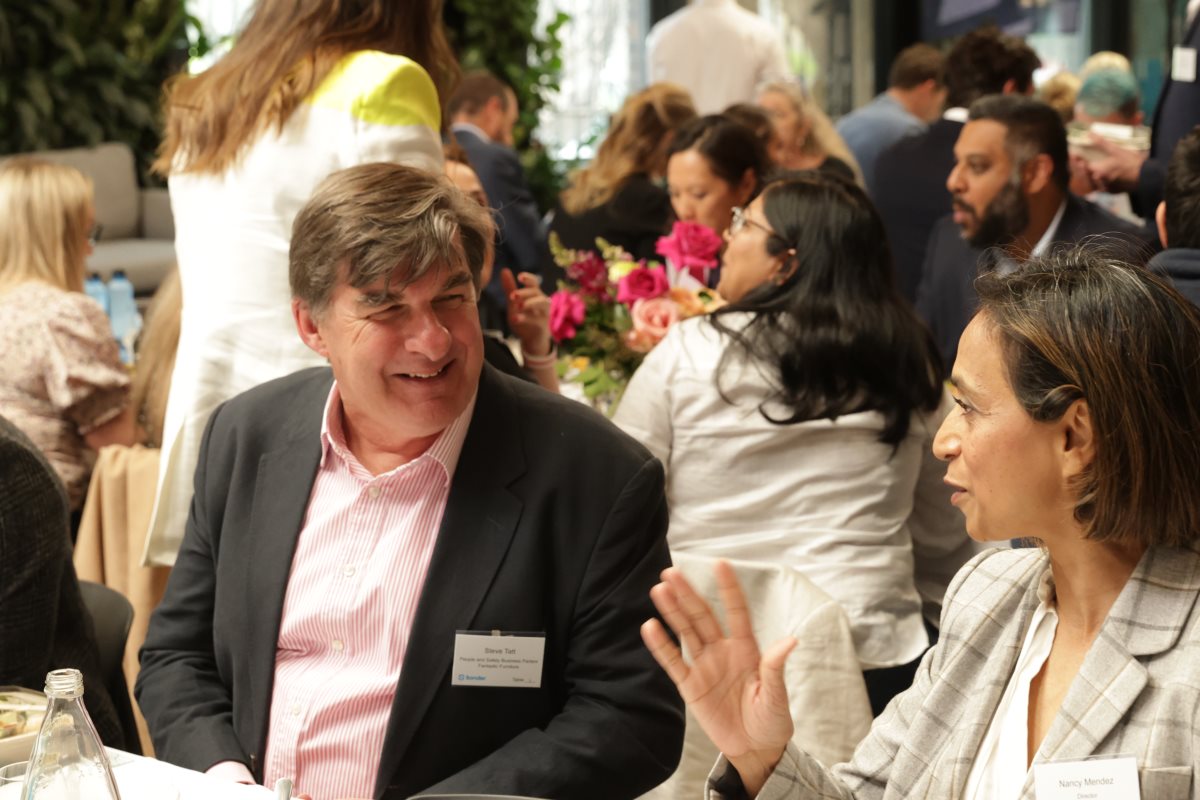
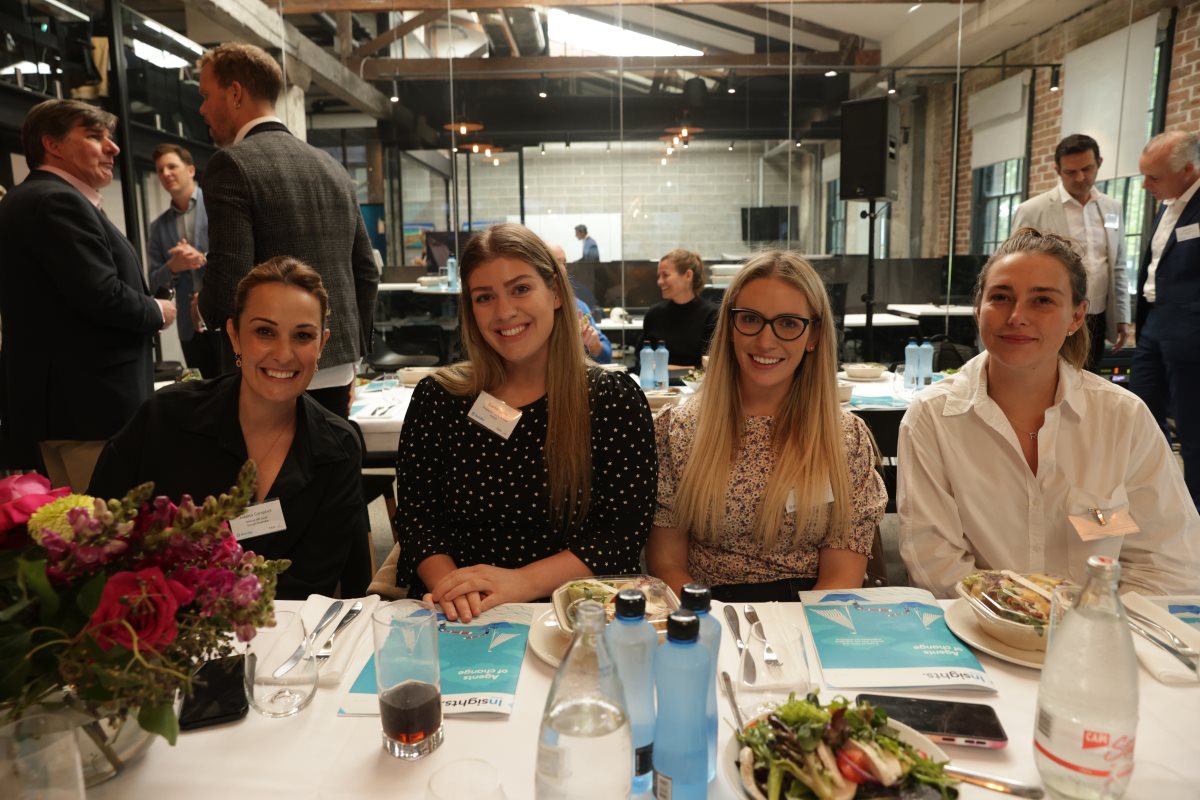
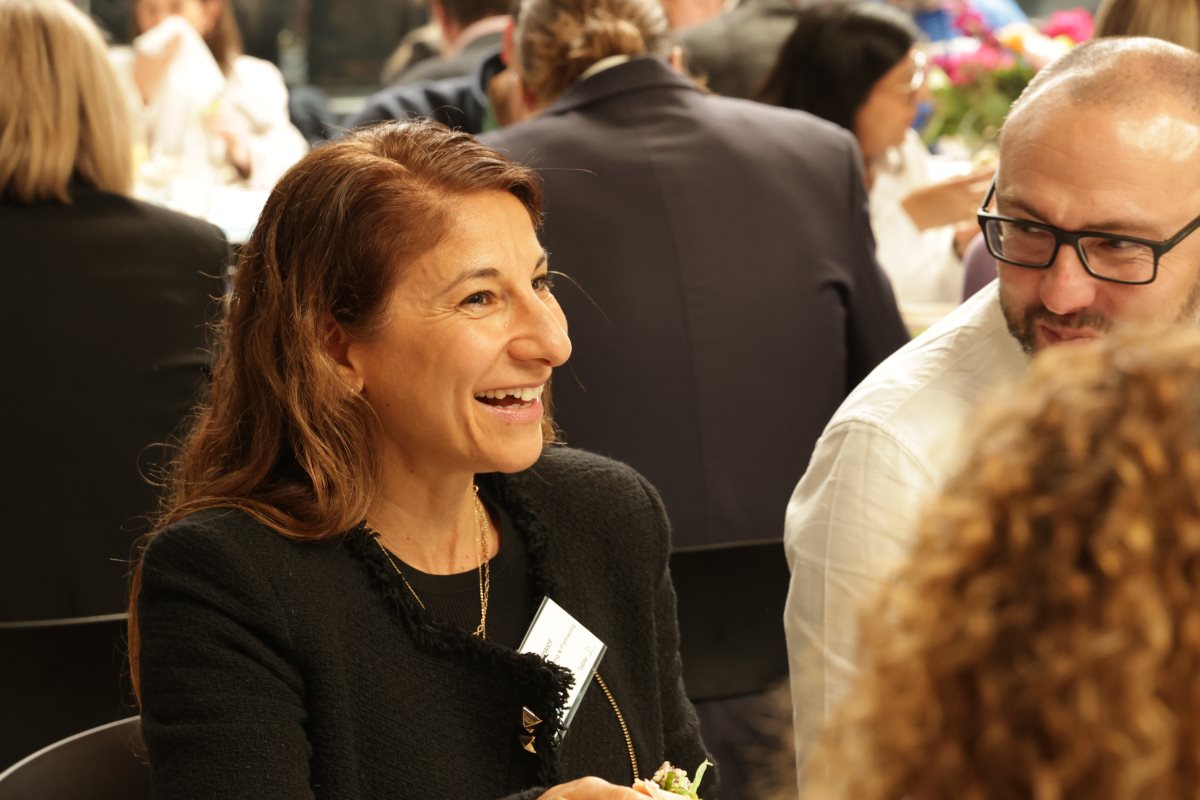
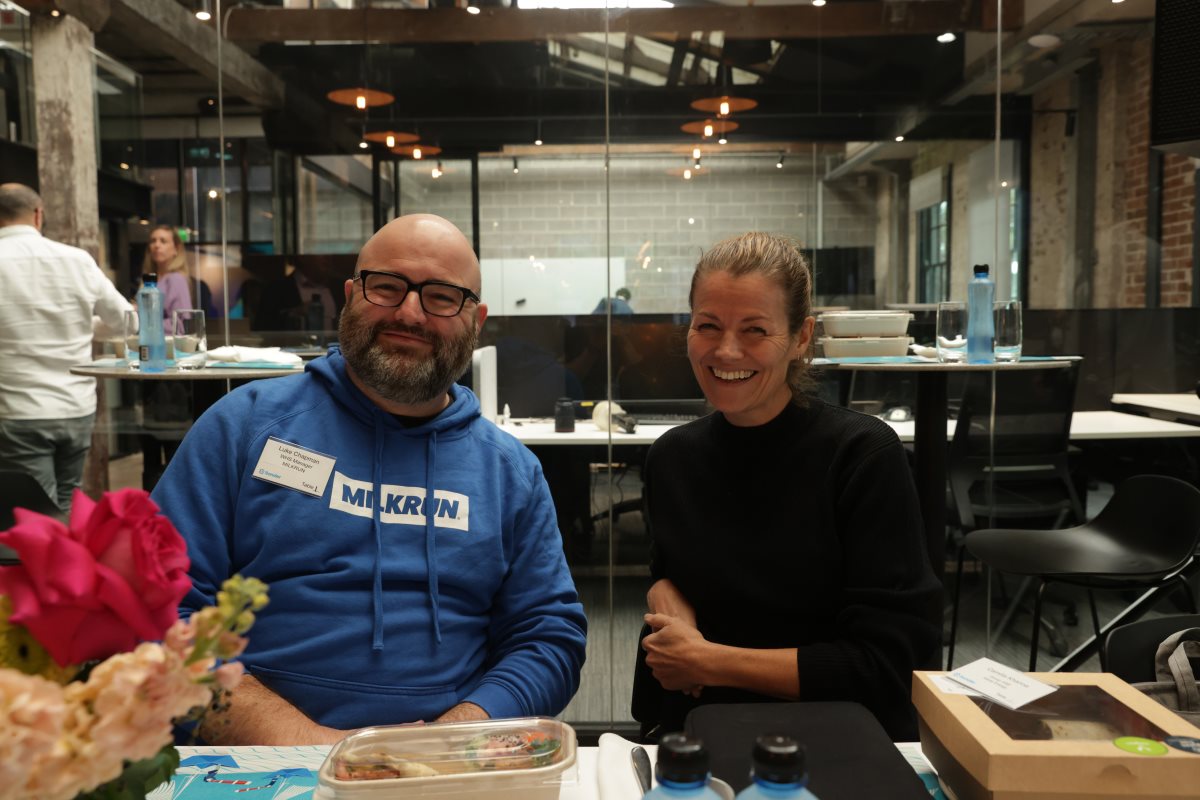
More videos from this event
The first instalment from our Agents of change for organisational wellbeing event can be found here. It features the panel session with Heidi Beck and Elle Dias.
The second instalment can be found here. It features the panel session with Steven Worrall and Melanie Silva.
Agents of change guide
To download a complimentary copy of our Agents of change guide, please click here. This guide will:
- Explain five roles of CEOs and leaders who are reshaping organisational wellbeing;
- Share case studies from Accor, Atlassian and Woolworths; and
- Help you understand how to lead and build a healthier organisation.
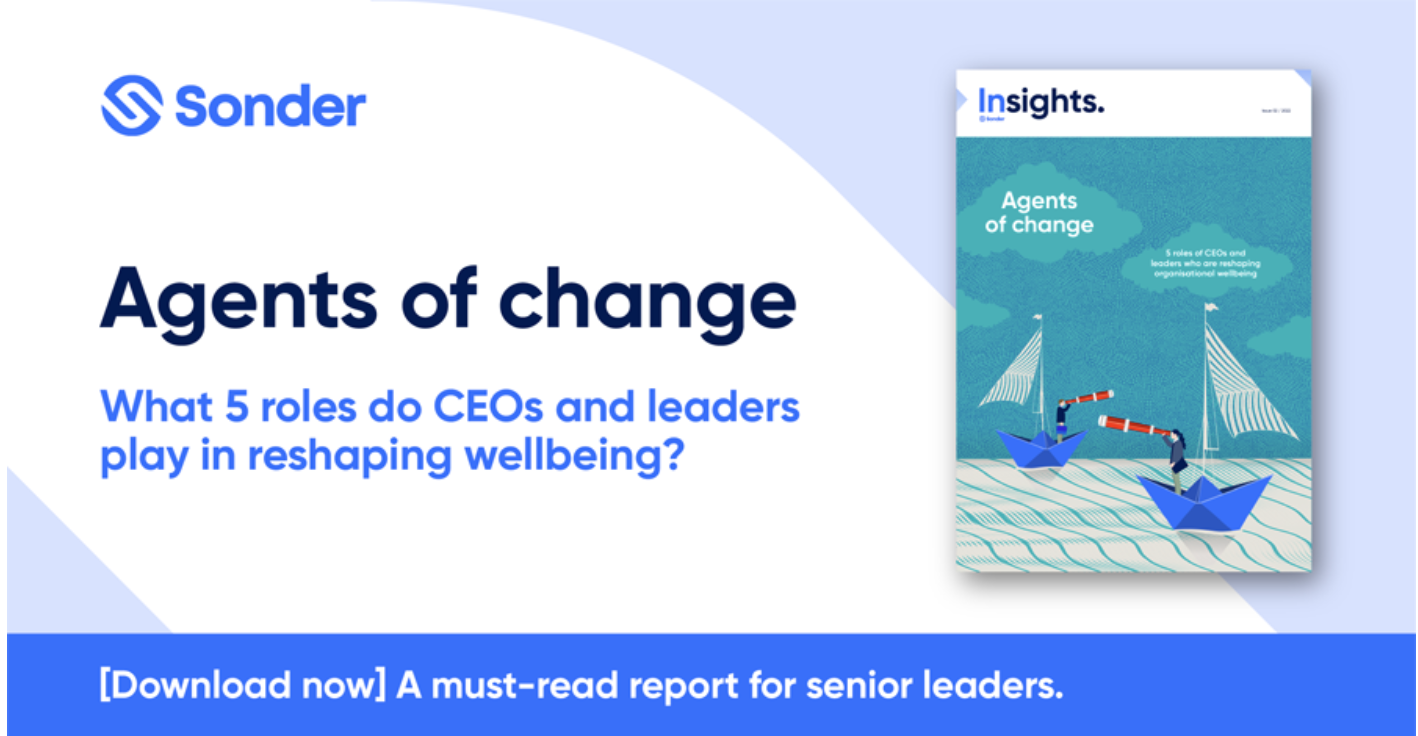
Want to learn more?
To learn more about how Sonder can help you reimagine your student and/or employee wellbeing support, we invite you to contact us here.
About Sonder
Sonder is a technology company that helps organisations improve the wellbeing of their people so they perform at their best. Our mobile app provides immediate, 24/7 support from a team of safety, medical, and mental health professionals – plus onsite help for time-sensitive scenarios. Accredited by the Australian Council on Healthcare Standards (ACHS), our platform gives leaders the insights they need to act on tomorrow’s wellbeing challenges today.
